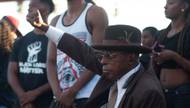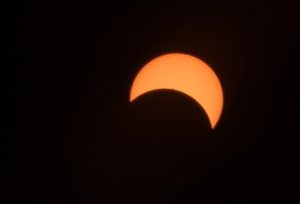Terri Galura-Chiong comes from a family of medical professionals, so it’s no surprise that for the past three months, the Las Vegas resident took every COVID-19 precaution imaginable.
“My husband and I still wear masks everywhere,” she says. “I wear a mask at work, even though there are people who don’t. If we go for a walk, we’re wearing masks.”
But when Galura-Chiong heard about the killings of Georgia’s Ahmaud Arbery in February, Kentucky’s Breonna Taylor in March and Minnesota’s George Floyd in May, she pictured getting a phone call about her own 24-year-old son—and a more terrifying fear crept in.
“This is sort of the life that we’ve led,” Galura-Chiong says. “Being the mother of a black man, this is the kind of fear [I have] every time he gets stopped by police. For us as a family, this is just something that we’ve been dealing with this whole time.”
Days before Phase 2 of Nevada Gov. Steve Sisolak’s reopening plan went into effect, thousands of people began demonstrating Downtown, on the Strip and on Las Vegas’ Historic Westside, protesting Floyd’s death at the hand of a Minneapolis police officer, an incident that reinvigorated the Black Lives Matter movement here and across the nation.
Speaking to a Black People Matter Rally crowd June 5 at Kianga Isoke Palacio Park, Leslie Turner, an organizer for Mass Liberation Project Nevada, said racism represents an even “bigger threat” to black lives than COVID-19.
“We’re out here during a pandemic, and the United States is the only country with [consistent] uprisings happening right now for a reason,” she said.
Despite a pandemic that has already claimed more than 113,000 lives in the U.S. alone, crowds of masked protesters have shown up to demonstrations across the country, reflecting the seriousness of their convictions.
Las Vegas minister Stretch Sanders, who organized the June 5 rally, said the event marked the second largest gathering at the former Doolittle Park, behind only a campaign speech by President Barack Obama in 2012.
Sanders says he hoped 1,000 people would turn out on June 5—and estimates 6,000 showed up instead. “I’m completely blown away,” he tells the Weekly. “I think people really had a chance to come together and to really take in all that love.”
Sanders remembers when just 30 people showed up to his first protest, a 2015 response to the death of Texas’ Sandra Bland. He says seeing so many more come together just five years later was both meaningful and somber, and hopes the rally provided a much-needed moment of respite.
“People are depressed. When you see a video of a black man saying, ‘I can’t breathe,’ it does something to you,” Sanders says. “But I also believe that at some point, we have to come together to unite. I wanted people to come out and be in a healing space. That’s why we had African drummers and music. I wanted to take the heavy moments and put some light on it.”
In April, The New York Times reported that black people in New York City were dying from the coronavirus at twice the rate of white people there, and on May 27, the American Public Media (APM) Research Lab reported that the COVID-19 mortality rate for black Americans is 2.4 times higher than for white Americans. Yet black-organized rallies and protests pressed on around the country.
Why? According to mappingpoliceviolence.org, black Americans are three times more likely to be killed by police than white Americans.
“Do we feel more seriously about COVID than we feel about racism?” asks Las Vegas attorney Athar Haseebullah. “The answer to which is more serious may be different if you ask a white person or a person of color.”
On June 1, Haseebullah had been protesting Downtown and was waiting for an Uber when, he says, he was wrongfully detained by a Las Vegas Metro Police Department officer. The moment was captured on video by one of his friends and later shared on Instagram.
“[We] were trying to demonstrate that being out and being peaceful would potentially share an inspiring message,” Haseebullah says, adding that, “There is no reason why [either] a civilian or officer should be harmed” during or following protest rallies.
For Galura-Chiong, while the threat of COVID-19 hasn’t waned, neither has the fear of police brutality. “I think [we] all realize it was a risk going to a protest,” she says. “I think everyone is quite aware of protecting themselves, but also how important it was to be there and show that you are standing up for black lives. This is such a pivotal, important time, and if there was any time to do it, it’s now.”
Las Vegas Councilman Cedric Crear echoed those sentiments at the June 5 rally. “This has been going on for centuries,” he told the crowd. “Why does this keep happening, and when is it going to change? Where is our justice?
“Young people, you have shown up, and I thank you for it,” Crear continued. “I can’t do what I do without you making a stand, protesting and recognizing what is right. Don’t let this moment die. I urge you to continue this fight, because I can tell you that it’s not over.”
Where might it lead? A Change.org petition started by Sanders asks that the State of Nevada create a bill against the use of excessive force by LVMPD. The petition states, “We are directly calling on Nevada Governor Steve Sisolak to create, sign and pass this bill.”
The coronavirus might not go away anytime soon, but there’s hope for a vaccine. No shot or pill can stop racism, however. As Turner, Crear, Sanders and so many others have explained throughout the recent Las Vegas rallies, it must be fought and dismantled through education, awareness and activism.
“[COVID-19] has affected us tremendously,” Sanders says of the black community in Las Vegas, adding that black people still suffer from a lack of health care in general. But, he continues, “I’d rather catch some justice for people who aren’t receiving justice, or catch some peace for a community that’s full of chaos.
“Coronavirus will eventually leave us, but police terrorism will still be here.”







